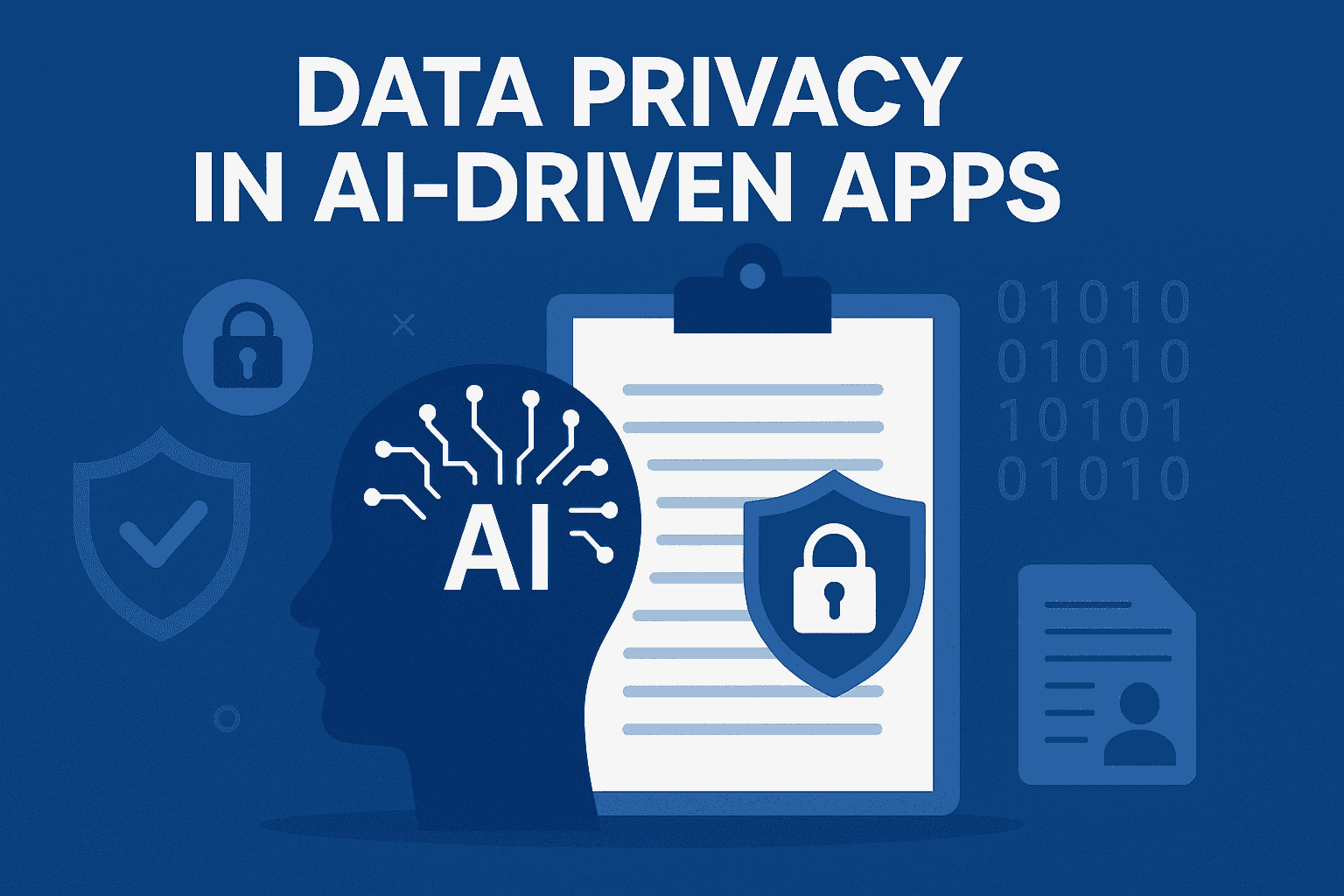
Let’s face it—every time someone downloads an AI-powered app, there’s an unspoken agreement: “You can use my data, but don’t get creepy about it.” And yet, here we are in 2025, where AI-driven applications are smarter than ever, and so are regulators. At Kanhasoft, we’ve seen firsthand how a brilliant AI feature can turn into a legal headache faster than you can say “GDPR fine.”
So, whether you’re building a recommendation engine that knows a user better than their mom or creating an AI chatbot that could probably pass the Turing test (on a good day), data privacy needs to be at the top of your dev checklist. And if it’s not? Well, don’t worry—we’ve got you covered.
We’ve spent years developing secure, AI-powered solutions across industries (and yes, dodging data breaches like Neo in The Matrix). Based on that experience, here’s our whimsical yet wildly practical guide to staying compliant in the wild west of 2025 AI regulation.
First things first: Data privacy isn’t just a buzzword—it’s law (and a pretty serious one)
You know how in the early days, developers would treat privacy policies like filler content (right between “About Us” and “Contact”)? Yeah, regulators didn’t find that funny. The big players—GDPR, CCPA, India’s DPDP Act—have evolved, and new ones are joining the party. In 2025, compliance isn’t optional, it’s survival.
Today’s AI-driven apps process not just names and emails, but behavioral insights, facial recognition data, voice recordings, and probably your coffee preference by Tuesday. That makes transparency and consent your new best friends.
Hot tip: If your AI is collecting user data in ways even you don’t fully understand… it’s time to bring in someone who does. We’ve had clients approach us after realizing their apps were “accidentally” storing sensitive user data in logs. Oops.
So what does compliance in 2025 look like?
Let’s break it down in the Kanhasoft way—plain speak, a dash of humor, and lots of experience talking.
-
Data Minimization
Don’t collect what you don’t need. If your AI app doesn’t need a user’s blood type to recommend Netflix shows, maybe don’t ask for it. Collect only what’s essential for functionality. And yes, “marketing might need it later” isn’t a good excuse anymore. -
Explainability & Consent
Thanks to the AI Act and friends, you now have to explain how your AI makes decisions—especially if those decisions impact users in real ways (think credit scores, hiring decisions, or being shown cat videos over dog videos). Also, make your consent forms human-readable. No, really—ditch the legalese and just be honest. -
Secure Storage & Transfers
Store data like you store family heirlooms—in a locked vault (preferably encrypted). And if you’re transferring it across borders? Make sure the receiving country plays nice with privacy laws. We recently built a secure knowledge base system for a healthcare client where data segregation and compliance across multiple geographies were mission-critical. -
Right to Explanation, Deletion, and Portability
Let users delete their data, ask for an export, or demand to know why their AI-generated horoscope told them to avoid seafood. Build these rights into your system’s UI/UX flow. It’s not just user-first design—it’s law-abiding design.
Anecdote time: One developer, a chatbot, and a privacy panic
A few months ago, a client came to us in a panic. Their AI chatbot—designed to help users schedule appointments—was logging conversations word-for-word. And guess what? It wasn’t anonymizing or redacting anything. We had to scrub over 2 million lines of chat logs and implement a new storage protocol. Moral of the story? Just because your AI can store everything, doesn’t mean it should.
Also—build audits into your dev cycles. If you don’t catch the privacy gaps early, regulators (or worse, Reddit) will.
Privacy-first development isn’t rocket science—it’s good engineering
At Kanhasoft, we approach every custom software development project with a privacy-first mindset. Why? Because we’ve learned (sometimes the hard way) that fixing compliance post-launch is like changing tires at 120 km/h.
So here’s what we recommend as a foundation:
-
Privacy Impact Assessments (PIA): Treat these as your pre-launch checklist. They help you find the weak spots before your users—or regulators—do.
-
Automated Consent Tracking: Especially important for apps that evolve over time. If your AI logic changes, your consent policies should too.
-
Versioned Data Handling Policies: Every version of your AI model may handle data differently. Keep records. Future-you will thank you.
What about ethical AI? That buzzword isn’t going anywhere
Ethics in AI might feel like a philosophical debate for another blog, but hear us out: In 2025, ethics = user trust = competitive advantage.
Whether it’s avoiding bias in training datasets or ensuring your algorithm isn’t making weird assumptions based on zip code, bake ethical guidelines into your dev culture. At Kanhasoft, we’ve started doing AI walkthroughs with clients to make them aware of potential ethical red flags—think of it as a mini therapy session for your algorithm.
Final Thoughts: Privacy isn’t a feature—it’s the foundation
Here’s the part where we wrap things up and deliver our signature Kanhasoft truth bomb: Privacy doesn’t slow down innovation—it powers it.
We get it—building AI apps is exciting. You want to move fast, break things, and launch before the other guys. But if you launch fast and forget privacy, the only thing you’ll be breaking is your legal budget.
In 2025, data privacy isn’t just a legal checkbox. It’s your brand’s credibility, your user’s trust, and your app’s long-term success—all rolled into one finely encrypted package.
Whether you’re developing a smart ERP system or the next-gen AI-driven health tracker, remember this: Privacy-first isn’t just smart—it’s necessary. And if you’re ever in doubt, give us a shout—we’re happy to take a look under the hood (we’ve seen everything by now).
Until then—code smart, encrypt often, and maybe stop logging user dreams. Yes, that happened once.
Need help building privacy-compliant, AI-powered applications from the ground up? Check out our AI/ML development services or drop us a line at kanhasoft.com—we promise not to use your data for evil.



